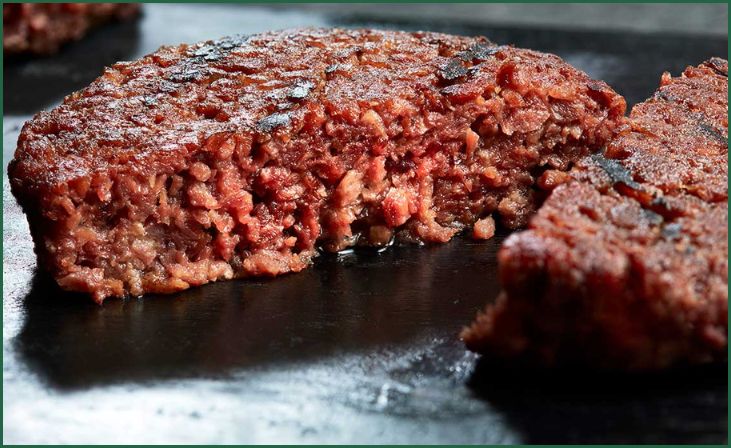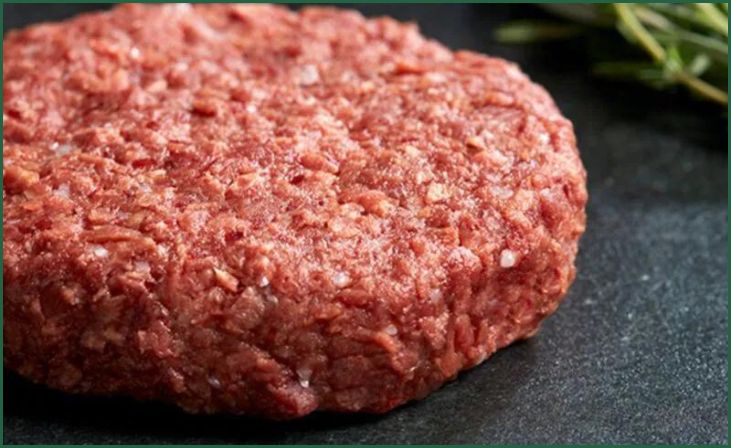Is Raw Fermented Meat Safe To Eat? Step into the captivating realm where culinary traditions intertwine with the inquisitive spirit: raw fermented meat. This blog extends an open invitation to embark on an illuminating exploration of the age-old culinary practice that revolves around the consumption of fermented meats. In the culinary tapestry of cultures worldwide, raw fermented meat holds a unique position, offering a taste experience that is both traditional and daring.
As we embark on this journey, our primary focus is to confront the pressing question that echoes in the minds of gastronomic enthusiasts—Is it safe to eat? In traversing the corridors of history, we will unravel the threads that connect this practice to bygone eras, understanding the cultural significance and evolution of raw fermented meat.
Simultaneously, we’ll delve into the scientific intricacies that underpin the fermentation process, shedding light on how it transforms raw meat into a distinctive culinary delight. Additionally, we’ll navigate through the lens of modern perspectives, exploring contemporary attitudes, debates, and considerations surrounding the safety and desirability of indulging in this unique gastronomic adventure.
So, fasten your seatbelts as we navigate through the annals of time, scientific revelations, and present-day discourses to unravel the mysteries that enshroud the captivating world of raw fermented meat.
Raw Fermented Meat
Raw fermented meat is a culinary phenomenon that transcends cultural boundaries, offering a unique and often acquired taste. This traditional practice involves preserving raw meat through the natural process of fermentation, where beneficial bacteria like lactobacilli play a pivotal role. As the meat undergoes controlled decomposition, a distinctive flavor profile emerges, characterized by complex, savory compounds.
Also Read:- Fermented Crabapple Cider
The process not only contributes to the culinary landscape with its rich heritage but also sparks debates about its safety and nutritional benefits. Raw fermented meat is a delicacy celebrated in various forms globally, from Italian bresaola to Ethiopian kitfo, each reflecting the nuances of local traditions and flavors. Enthusiasts savor this culinary adventure, navigating the delicate balance between cultural appreciation, flavor exploration, and the meticulous considerations of safety associated with consuming raw meats.
Is Raw Fermented Meat Safe To Eat?
Consuming raw fermented meat is a practice deeply rooted in culinary traditions across the globe. While it offers a unique and often tantalizing taste experience, the safety of indulging in this age-old delicacy raises legitimate concerns. In this article, we will unravel the intricacies of raw fermented meat, presenting you with 10 essential reasons to contemplate before taking that culinary plunge.
Cultural Legacy:

Raw fermented meat has a rich cultural heritage, with various communities incorporating this practice into their culinary traditions. Whether it’s the Italian bresaola or the Ethiopian kitfo, understanding the cultural significance provides insights into the meticulous preparation methods passed down through generations.
Fermentation Process:
At the heart of raw fermented meat lies the fermentation process, a natural preservation technique. Beneficial bacteria, such as lactobacilli, play a pivotal role in this process, creating an acidic environment that inhibits the growth of harmful microbes. Properly fermented meat undergoes controlled decomposition, enhancing flavors and potentially contributing to improved digestibility.
Don't just scroll, subscribe!
BuzzTrail's unique web-stories are the cure for boredom you've been waiting for.
Flavor Development:
One of the primary reasons enthusiasts are drawn to raw fermented meat is the unique flavor profile that emerges during the fermentation process. The breakdown of proteins and fats leads to the creation of complex, savory compounds, providing a distinct taste that sets fermented meats apart from their cooked counterparts.
Nutritional Potential:
Advocates argue that the fermentation process not only enhances flavor but also increases the nutritional value of the meat. Proponents claim that fermented meats may contain elevated levels of certain vitamins and beneficial compounds, contributing to a potentially more nutrient-dense option compared to conventionally cooked meat.
Risk of Pathogens:
However, the safety of raw fermented meat hinges on meticulous preparation and adherence to hygiene standards. The risk of bacterial contamination, including pathogens like E. coli and Salmonella, is a significant concern. Ensuring the meat comes from a reliable source and implementing stringent hygiene practices during preparation is paramount.
Quality of Ingredients:

The quality of the meat used in fermentation is crucial. Opting for high-quality, fresh meat from reputable sources minimizes the risk of contamination. Understanding the sourcing practices and ensuring the meat meets safety standards is a proactive step toward mitigating potential health risks.
Personal Health Considerations:
Individual health conditions should also be taken into account. Immunocompromised individuals, pregnant women, and those with certain health issues may be more susceptible to foodborne illnesses. Consulting with a healthcare professional before incorporating raw fermented meat into the diet is advisable, especially for individuals in high-risk categories.
Regulatory Compliance:
In many regions, there are regulations governing the production and sale of fermented meats. Ensuring that producers adhere to these regulations provides an additional layer of safety. Regulatory bodies set standards for hygiene, processing, and labeling, offering consumers reassurance regarding the safety of the product.
Educating Consumers:
Promoting awareness and educating consumers about the risks and benefits of raw fermented meat is essential. Transparent labeling, clear information on sourcing and processing methods, and public awareness campaigns contribute to informed consumer choices.
Responsible Consumption:

In conclusion, the safety of raw fermented meat revolves around responsible consumption. Embracing this culinary tradition requires a balance between cultural appreciation, understanding the fermentation process, and implementing rigorous safety measures. By making informed choices, enthusiasts can enjoy the unique flavors of raw fermented meat while prioritizing their health and well-being.
Also Read:- Fermented Food For Dogs And Cats
Conclusion
As we conclude our exploration into the realms of raw fermented meat, one thing becomes clear—there’s more to this culinary tradition than meets the eye. By understanding the intricacies of the fermentation process and embracing responsible consumption practices, enthusiasts can savor this unique culinary experience while prioritizing their health and well-being. Cheers to the journey of flavor and safety!
FAQs
Q: What is raw fermented meat?
Q: What is raw fermented meat?
A: Raw fermented meat is a culinary practice involving the fermentation of raw meat using beneficial bacteria. This process not only imparts distinctive flavors but is also believed by some to enhance the nutritional profile of the meat.
Q: Is raw fermented meat safe for consumption?
Q: Is raw fermented meat safe for consumption?
A: While the safety of consuming raw fermented meat depends on various factors, including the fermentation process and source of meat, proper preparation and adherence to hygiene standards significantly mitigate risks. It’s crucial to understand the nuances to enjoy this delicacy responsibly.

